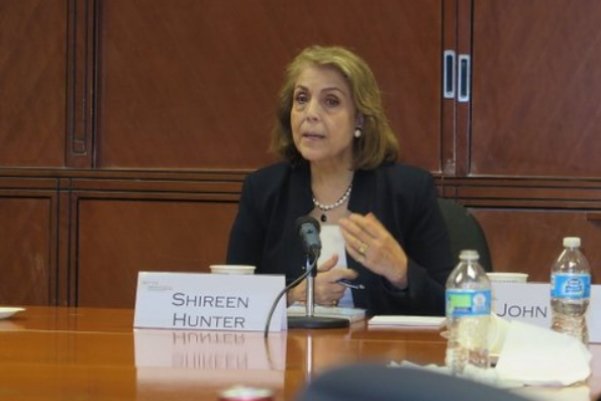Scholar predicts Bin Salman will intensify war on Yemen

TEHRAN - A professor of political science at Georgetown University is of the opinion that Mohammed bin Salman, who was suddenly promoted to the second ranking person in the Saudi Kingdom, will intensify war against Yemen and assert a tougher policy toward Iran.
“The appointment of Bin Salman means that Saudi Arabia's hardline approach towards the war in Yemen as well towards Iran will continue,” Shireen Hunter tells the Tehran Times.
Following is the text of the interview:
Q: What were the reasons that King Salman deposed the sitting crown prince and replaced him with his son Mohammed bin Salman?
A: The appointment of Prince Muhammad Bin Salman to the position of Crown Prince was accepted. For some time now following the dying off of Abdul Aziz' sons and the very old age of few remaining sons it was expected that the system of succession in Saudi Arabia would change from lateral to vertical. In other words, the son of the ruling king would succeed his father and so on and on. The fact that King Hussein of Jordan bypassed his brother, Prince Hassan, who was the crown prince in favor of his own son Abdullah seems to have also contributed to King Salman's decision.
Moreover, Prince Mohammad Bin Nayef seems to have some personal issues and rumors about his problems with drugs have been circulating for some time.
Q: What might be the reaction of the supporters of Mohammed bin Nayef who was stripped of all his positions?
A: It has been reported that 31 of the 34 prince members of the Beyat Council have pledged allegiance to the new crown prince, including Muhammd Bin Nayef himself. Therefore, although many princes might be unhappy with the change, it is unlikely that they would attempt to unseat either the new crown prince or the king. Despite their differences, the Saudi princes' interests are best served by their unity rather than unnecessary squabbling among themselves.
Q: Wasn’t the crown prince’s dismissal a soft coup with a green light by the U.S. and the UAE?
A: The appointment of Muhammad bin Salman to the position of crown prince was widely expected. Therefore, the change cannot be characterized as a coup. It is more like a generational change with younger princes replacing the remaining and old sons of Abdul Aziz. This is especially the case as bin Salman has effectively been running the country since his father became king.
Q: What might be the repercussions of such a major reshuffle on Saudi foreign policy in the region?
A: The appointment of Bin Salman means that Saudi Arabia's hardline approach towards the war in Yemen as well towards Iran will continue, and so will its push to expand its influence in the Arab world, especially the Persian Gulf region. Relations with Iran, in particular, could seriously deteriorate as Bin Salman might increase destabilizing efforts inside Iran.
Q: Was the reshuffle somehow related to Trump's recent trip to Riyadh?
A: Prince Bin Salman has tried very hard to portray himself as America's best ally. It also seems to have indicated that he might be able to help resolve the Palestinian dispute and bring peace between Israel and Arabs. Therefore, the United States seems to have a positive view of him. However, there is no direct connection between President Trump's visit to Saudi Arabia.
